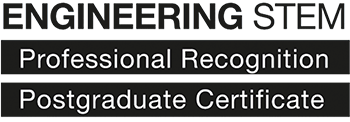FAQs – Structures and Mechanisms with Basic Electrics
Frequently asked questions
Primary Engineer® Structures & Mechanisms with Basic Electrics
How is this cross-curricular?
Structures and Mechanisms with Basic Electrics aligns with subjects such as Maths, Science, English, Art & Design and Design & Technology.
Can I deliver this to SEND pupils?
Yes, our programmes are created with all pupils in mind. There are 4 different levels to the Structures and Mechanisms with Basic Electrics to allow for differentiation. These are Apprentice Levels 1 and 2, and Engineer Levels 1 &2. If you require any more support, Primary Engineer trainers are on hand during and post-training to help.
What if some pupils do not have a shoebox, is there an alternative?
Yes, a huge part of engineering is problem-solving. If a shoebox is not available, other boxes can be used. Alternatively, we would suggest building a basic frame out of thick card or wood and fixing something on top of the frame that would act as the body of the vehicle.
Do you have to specialise in a particular topic to be able to deliver this?
No, you do not have to specialise in engineering to deliver this project. It is a cross-curricular project to encourage engineering skills, such as problem solving, creativity, communication and many more.
How shall I deliver/train other teachers for this course?
Once you have completed the course, start by delivering the project to a class or even a smaller group of pupils. When you feel more confident deliver to other teachers.
What if I forget how to build the vehicles?
Build Instructions are available in the resources pack. Access to resources is granted once you have filled in the course evaluation form.
Where can I find the presentation?
After attending the training course, you will be asked to fill in an evaluation form; once this is complete, you will gain access to all resources for Structures and Mechanisms with Basic Electrics.
Do we have to do a celebration event?
Yes, you must run a celebration/testing event, the testing of the vehicles finalises the build and is fun for pupils as well. Information on running a celebration event will be provided during the training. Once you have sent in your pictures/videos of the testing and chosen winners we will send out certificates.
Do I need to buy tools before doing the training course?
Once you have fully registered, you will be sent a Primary Engineer Kit in the post with some materials and tools in. There are however some essential items that you must provide yourself, this list will have been sent via email once you registered for the course.
If I want to do this with the whole school, where can I get the kit?
By attending the Structures and Mechanisms with Basic Electrics course, you will receive a kit to make 30 vehicles, (15x Apprentice Level Shoe Box Vehicle and 15x Engineer Level Controlled Vehicle). Should you wish to continue the programme with more pupils, you can purchase kits through Primary Engineer by emailing info@primaryengineer.com.
Where can I find the resources?
Once you have completed the training and filled in our evaluation form, you will be sent an email that will grant you access to view the resources for the course.
Are there any other courses I can do?
Yes, all programmes are listed on our website – once you have registered your interest in a programme, we can check to see if there is any funding in your area for that particular course.
Can I deliver any other Primary Engineer Programmes to pupils who are remote learning?
There are some elements of the Structures and Mechanisms with Basic Electrics programme that may be delivered to remote learners. We also have other programmes that have a whole range of home learning resources to support you and your pupils. You can find these below.
Can’t find what you’re looking for? Get in touch.
Ready-to-go projects in the classroom or at home
In our continuing support to you, we have STEM projects ready to go in your classroom.
With home learning resources, you can access lesson plans and resources to support pupils with remote learning.

Award-winning national STEM competition encouraging pupils to identify a problem in the world around them, and design a solution to it.

A ready-to-go data project designed to deliver meaningful mathematics, data handling and data visualizing in primary and secondary aged children at home or in school.

Registrations for the Postgraduate Certificate and Professional Recognition in Engineering STEM are now open
